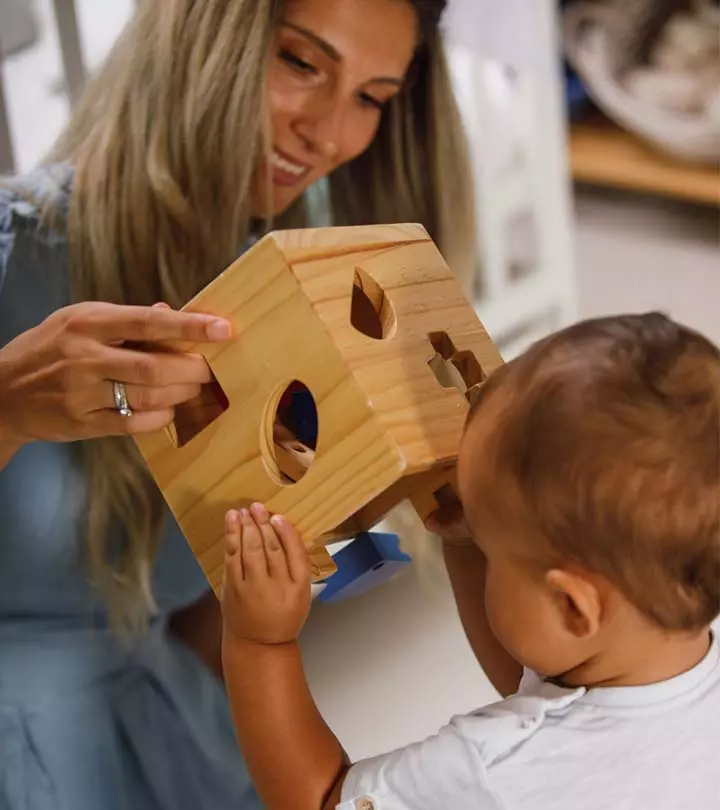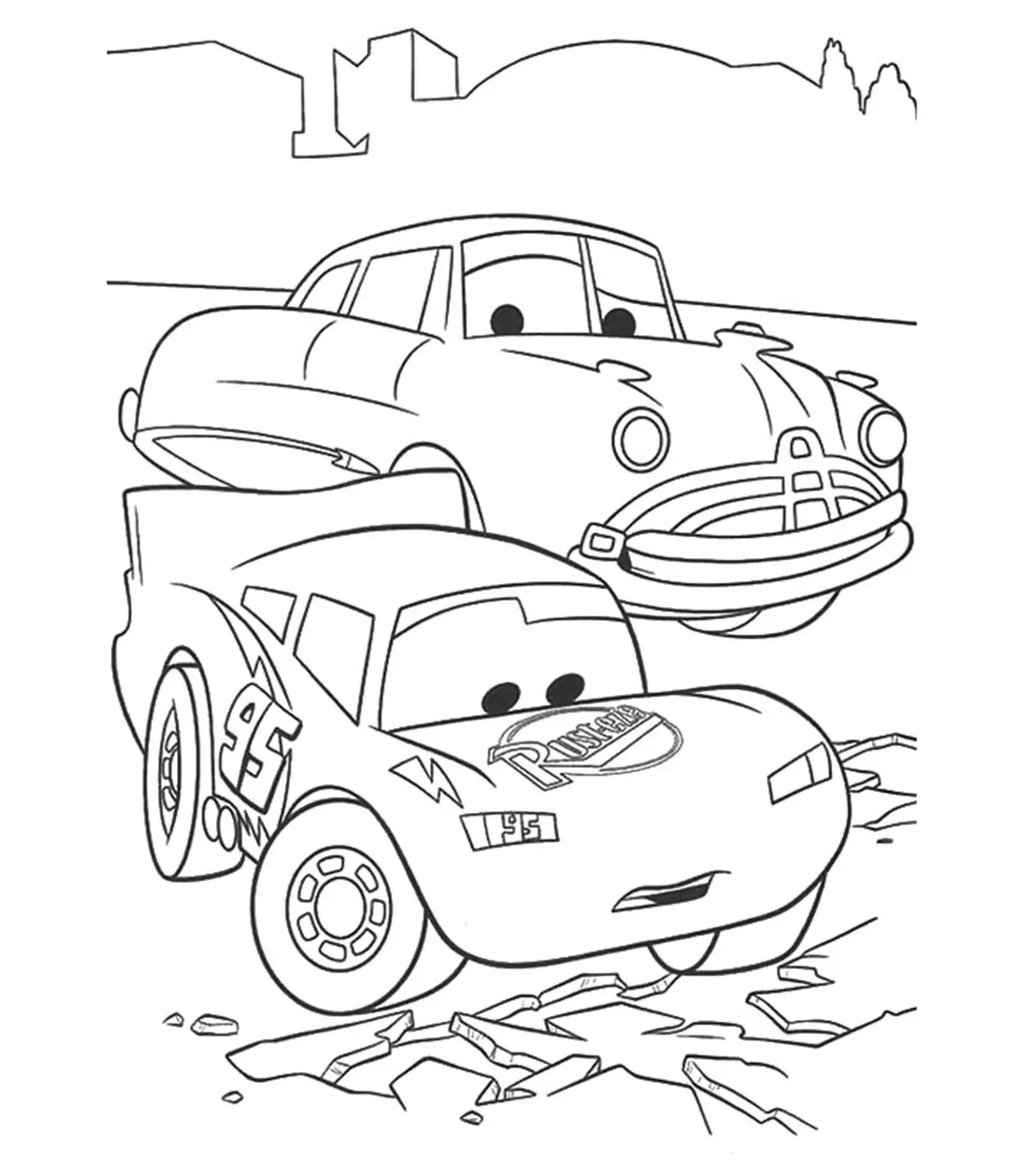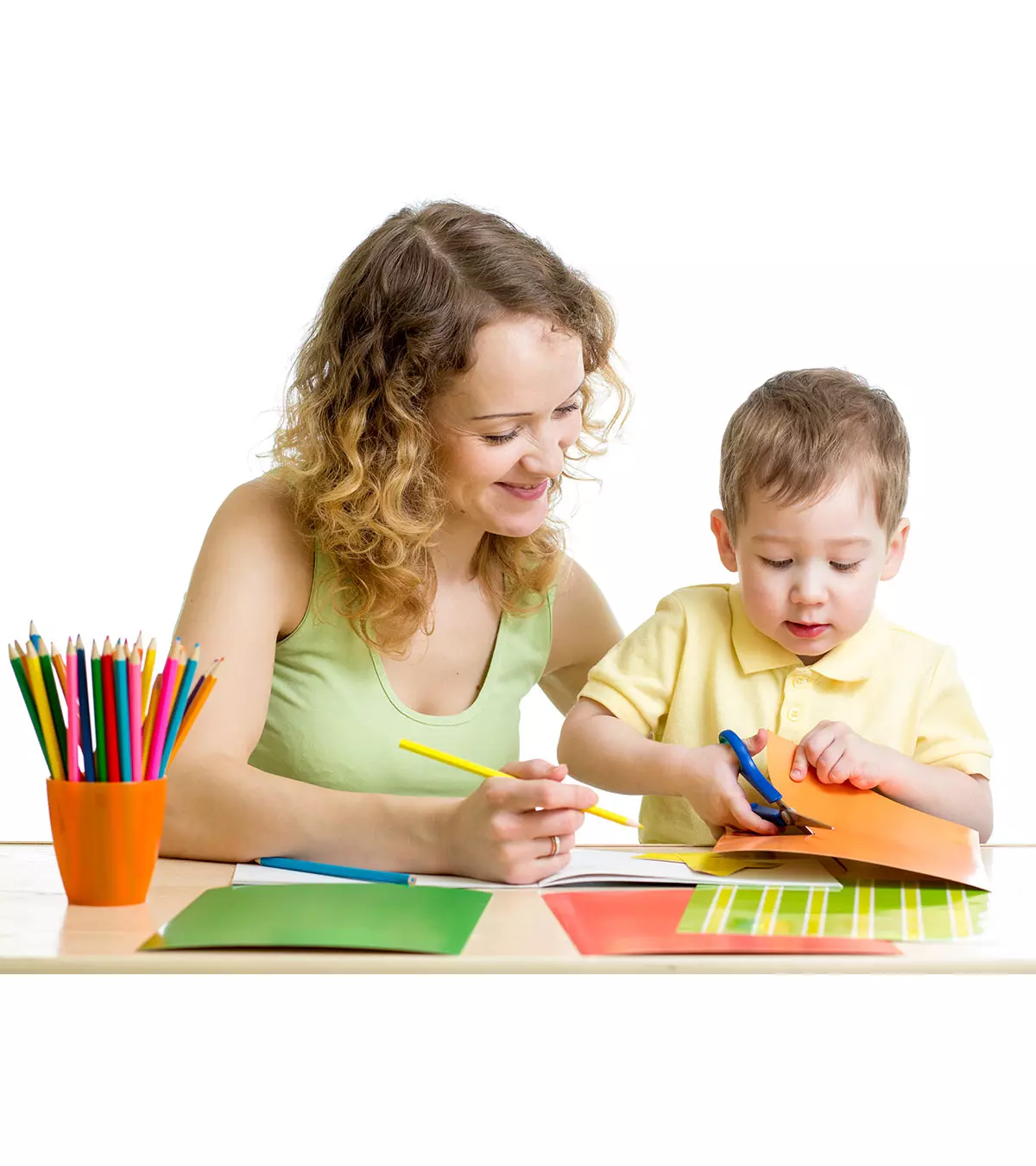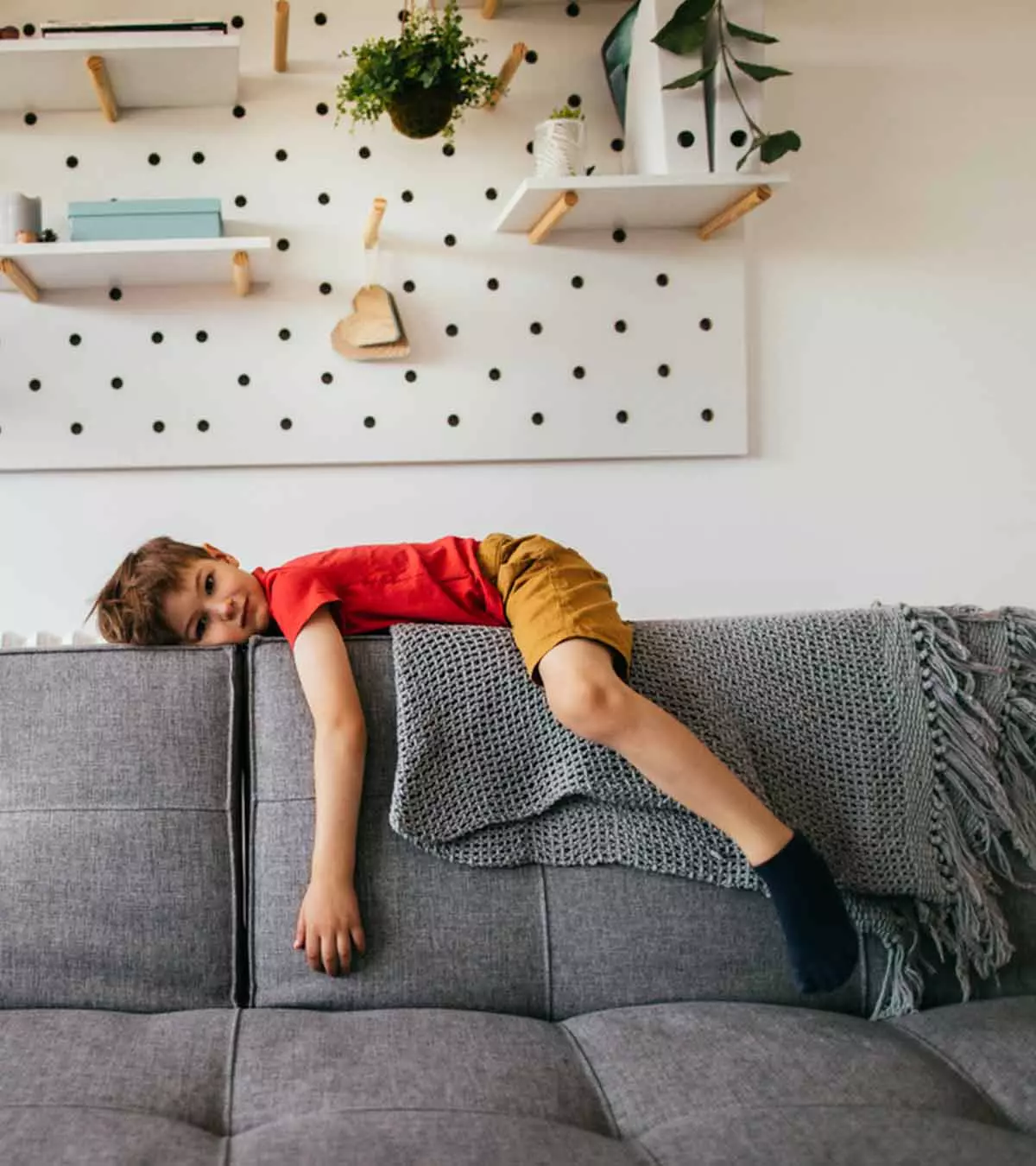
Image: iStock
Children are filled with curiosity, and they can easily get bored with any toy, game, or activity that fails to engage them. When bored, they can act irritable and fussy, thus, compelling you to hunt for things to do when kids are bored. We know how confusing it is to find age-appropriate activities for children, so we bring you some interesting, engaging, and fun activities to keep them entertained and engaged. These activities can alleviate boredom, help them explore their creativity, and enhance their cognitive and emotional growth. The best part about these activities is that they need minimal involvement or preparation. They also cater to different interests, age groups, and settings.
Key Pointers
- Introducing your children to some educational and creative activities might help improve their learning and developmental skills, besides killing their boredom.
- Involve them into making simple DIY items such as bracelets, accessories, greeting cards, or paper designs.
- Put their minds to work with innovative worksheets and story-writing activities.
- Teach them about various skills such as cooking, gardening, or bike riding.
100+ Things To Do When Kids Are Bored
When children are engaged in an activity, they spend hours quietly. But the tricky part is finding the right things to do when bored. Here are some amazing options. No matter what you’re looking for — something entertaining, creative, or educational — this list has everything you need to keep your children engaged.
Experts have found that boredom can be beneficial for children. It can help them develop skills, creativity, and self-esteem. Hence, it is recommended that children of all ages should be exposed to some unstructured activity (1). However, parents face issues when the child refuses to do anything and wants their attention instead. While giving attention is good, making this a habit can lead to a vicious cycle. However, you can offer your children a choice of activities out of which they can pick one.
In recent years, social media has taken over everybody’s lives. However, it is important to recognize that those curated images and videos are not a reflection of real life. You may seem to be doing the bare minimum for your children, but even so, you are the best parent for them. Mom of five, Alicia writes about how she strives to be a good mother to her children without being overwhelmed by social media. She is amazed by how people try to make everything perfect for their children instead of doing something interesting with them. She writes, “There is a picture book that I read to my kids at bedtime sometimes that sums up a magical childhood to me. It’s called My Mama Had a Dancing Heart and it’s about a little girl and her mother through the seasons spending time together cutting out paper snowflakes, playing in fall leaves, dancing in the rain and so on. The last line is, “My mama had a dancing heart, and she shared that heart with me.” That’s the kind of mom I have always tried to be. And I frankly think it’s nonsense for anyone to suggest that’s a bad thing (i).”
You may assist your children when required, but do not fall into the trap of buying toys or puzzles that promise to keep children engaged or entertained for hours. Here are some creative things to do when kids are bored to allow them to explore their own talents.
Creative Things To Do When Kids Are Bored
Encouraging creativity in children can be a fun and rewarding experience. The following activities not only stimulate their imagination but also makes way for self-expression and learning. These activities have been tried and tested by parents all over the world with great success. They have been taken from accounts of parents both online and offline.
1. Create art with bubble wrap
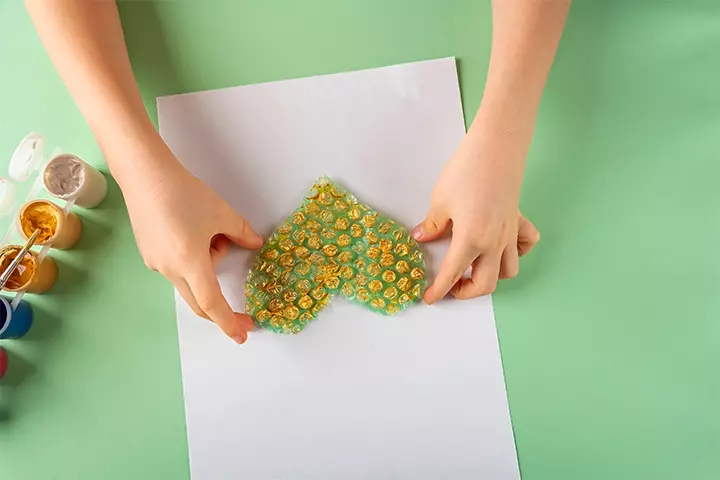
Do not throw away your latest delivery bubble wrap because you can create art with it! Your child can use paint and bubble wrap to create funky prints on t-shirts or wallpaper. This sensory activity will keep your child engaged for quite some time. Give them some watercolors and bubble wrap. Let them dip the bubble wrap in paint or paint on the wrap with a brush and press it firmly against whichever surface they are working on. The fun aspect of this activity is that no two prints will be the same.
2. Make a sensory bag
Engage your little one’s senses and develop their cognitive skills by exposing them to different sounds, colors, and textures.
Sensory bags are extremely easy to make and provide hours of mess-free play. All you need to do is fill a Ziploc bag with hair gel, glitter, toys, beads, and any other small items your child wishes. Let your child move their hands over the bag to feel different textures.
3. Make paper flowers

Beautiful paper flowers are the perfect way to brighten up your home. With just a few materials such as crepe paper or tissue paper, scissors, and glue, you can create whimsical decorative pieces. You can start with simple patterns and designs and then move on to more complex ones.
4. Enjoy doodling

Doodling is therapeutic. Moreover, it is a fun way to pass the time. It helps improve drawing and can be a great addition to your child’s portfolioiA collection of the different art projects of the child. . Your child can do this freehand or download free printable versions and doodleiDrawing or scribbling absentmindedly or when bored. away. In the beginning, give your child a small sketchbook and encourage them to draw daily, even if it is just a line. They can experiment with different shapes and patterns as they progress.
5. Make friendship bracelets

Children of all ages can enjoy making friendship bracelets. Younger ones can make simpler ones, and older children can try complicated patterns. This activity improves fine motor skills and helps build patience while allowing kids to express their creativity. Start with basic knots and let them explore more intricate patterns as they go.
 Point to consider
Point to consider6. Make and fly a kite
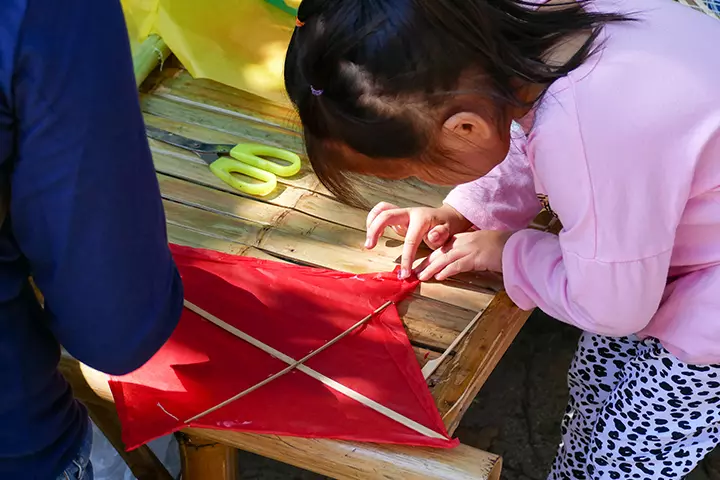
Your child can use materials lying around the house to make a kite. Once they’re done, you can join your child to experience the thrill of kite flying. Engaging in this simple yet entertaining sports activity will surely bring joy and excitement to you and your child. This activity helps develop problem-solving skills and creativity while also encouraging outdoor play.
7. Make a fairy garden

Draw inspiration from one of these whimsical DIY fairy garden ideas to create one of your own. Gather a few supplies and get your fairy garden going! Creating a fairy garden sparks your child’s imagination and instills a love of nature. Encourage your child to personalize their garden with miniature decorations and plants.
8. Solve a tape maze
Get your child to use masking tape to create a maze on the floor and see if they can find their way out.
Get your child to use masking tape to create a maze on the floor and see if they can find their way out.
9. Create a story using stones
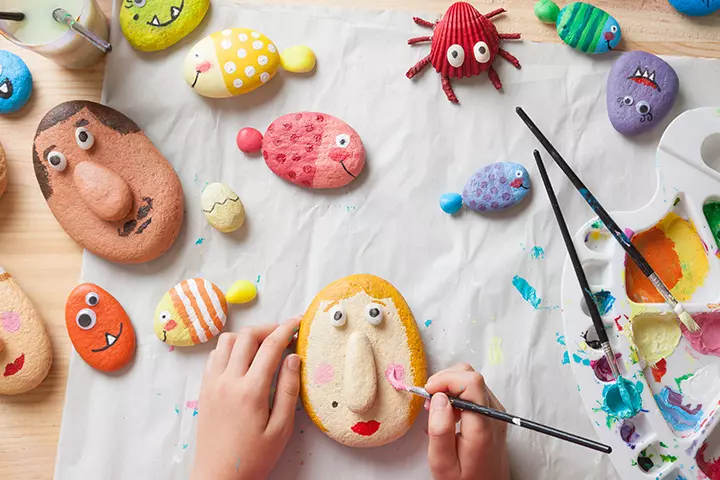
Your children can gather stones from the backyard or beach and then paint or draw characters and objects on each one. It is engaging, and they can also use it as props in a story. Storytelling with stones boosts creativity and language skills. Encourage them to mix and match stones to create new stories each time.
10. Design a postcard
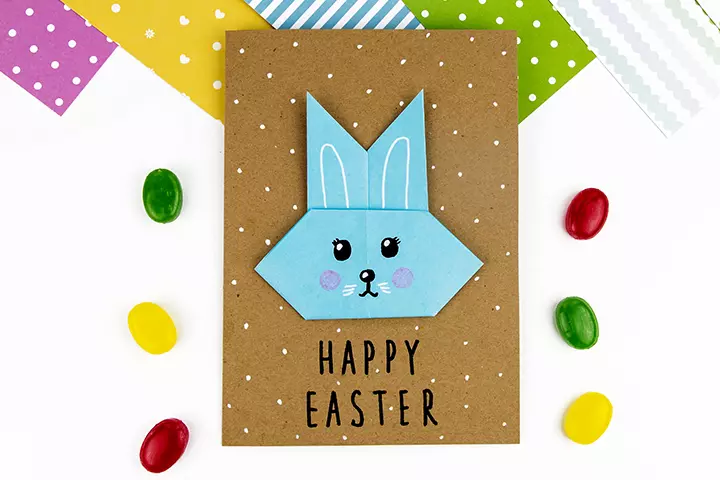
Buy a bunch of blank postcards and hand them to your child along with crayons, paints, stickers, and more for them to decorate. Your child can then design them and send them out to friends and family. This activity helps improve fine motor skills and teaches the joy of personalizing and sharing handmade creations. Try adding a short handwritten message for an extra special touch.
11. Create fairy jars

Fairy jars are extremely fun to make and look absolutely gorgeous. You’ll find easy tutorials online. A glow-in-the-dark jar works as a night light until the glow wears off! This activity encourages creativity and fine motor skills. You can experiment with different colors and glitter to make each jar unique.
12. Try finger painting
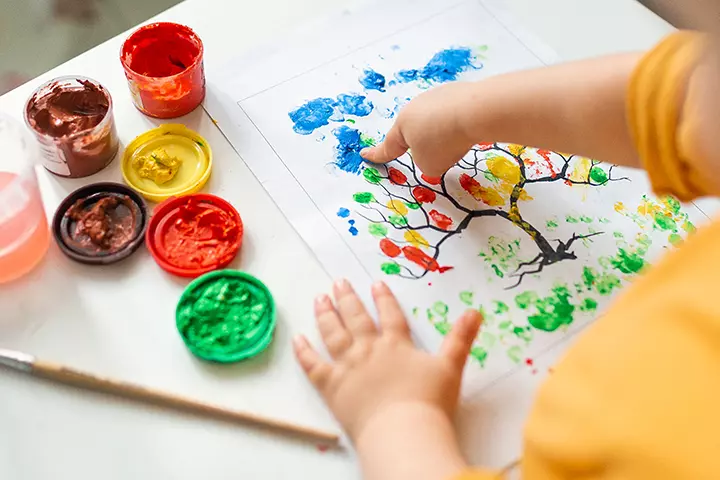
A piece of paper and paint are all a child needs to get creative and messy. Let them use their fingerprints to create different designs on the paper for your home. Finger painting increases sensory exploration and hand-eye coordination. You can also encourage color mixing to let them discover new shades and patterns.
13. Create edible necklaces
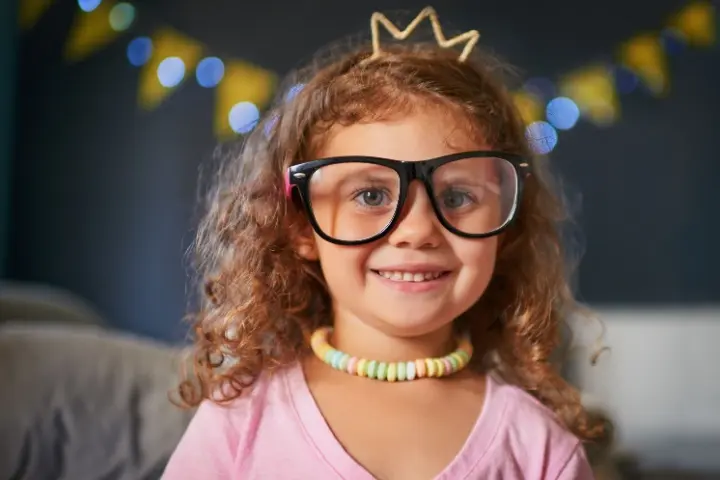
Edible necklaces are so easy and fun to make. Your child can grab a string and a few of their favorite snacks or candies and get stringing and beading! This activity promotes fine motor skills and creativity while making snack time extra fun. Use different shapes and textures for variety.
14. Solve a maze
Grab a few sheets of paper and some pencils, and get your family together. Parents or older siblings can draw a maze on paper, while the younger ones can solve it. Mazes improve problem-solving and concentration skills. You can gradually increase the difficulty level for an added challenge.
15. Design a flipbook
Ask your child to draw a few silly pictures on cards and clip the cards together. The countless combinations will keep everyone entertained for hours. Creating flipbooks improves storytelling skills and artistic expression. Try adding movement to characters for an animated effect.
 Quick tip
Quick tip16. Have fun body tracing
A child loves tracing their hands and feet. Instead, roll out a big sheet of paper and have them trace their entire body. Later, they can fill their silhouetteiThe darker outline or form of a person against a brighter background, making their features and other details obscure. as they please. This helps develop spatial awareness and also allows them to experiment with self-portrait art.
17. Create a vision board

Let your child look at the future and use the vision board to write down their aspirations. Once they’re done, you can hang the board in their room for them to see every morning. Encourage them to add drawings, stickers, and inspirational words.
18. Have fun with photography

Hand your child your phone or a camera and let them photograph stuff around the house. Who knows what amazing, cool, and funny things they’ll come up with! Photography enhances observation skills and creativity. You can create exciting challenges by asking them to capture specific themes like nature, patterns, or emotions.
19. Create a pool noodle obstacle course

Have fun with pool noodles without jumping in the pool. You can use them to create obstacle courses around the house. They can jump over, balance on, crawl under, or climb through them. This activity promotes physical fitness and imaginative play. Rearranging the course can keep it exciting every time.
20. Create DIY paper frogs
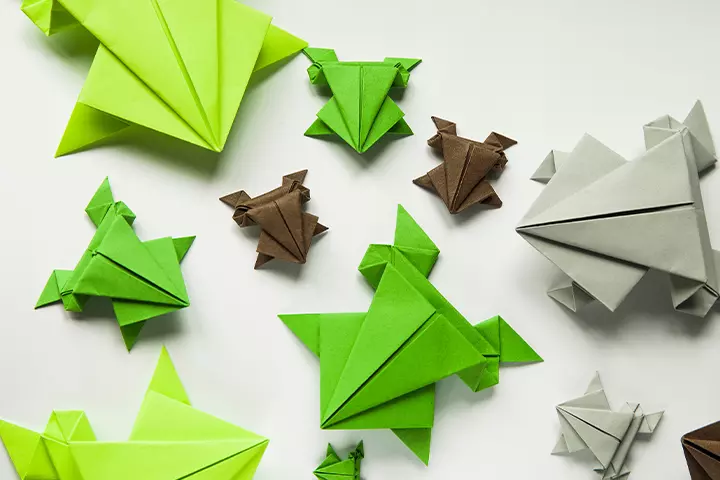
Paper frogs can jump! Once your child folds the paper into a frog, let them take it out into the sidewalk or backyard and see which one hops the furthest. Origami improves fine motor skills and patience. Experiment with different paper sizes to see how far each frog can jump!
21. Make your own slime

Slime is trendy. It’s so easy and so much fun to make. Children enjoy playing with it. There are plenty of tutorials online, so you can look for one that’s suitable for your child. Making slime helps develop sensory skills and creativity. Let them experiment with different textures and colors for an extra layer of fun.
22. Make glow bubbles
Make bubbles that glow under a black light. Use some bubble solution and ink from a highlighter, and get ready for some glow-in-the-dark fun! This activity introduces basic science concepts while providing an exciting nighttime experience. Try using different colors to create a glowing rainbow effect,
23. Make bookmarks

If you have children who read, making bookmarks is an excellent idea. Take a large colorful paper clip and tie some ribbons to it. You can use different materials, such as tassels, duct tape, and fabric, to make fancier ones. Creating bookmarks can help them develop a love of reading and spark their creativity.
24. Create a DIY race track
Use washi tape or masking tape to create a colorful, customizable race track for tiny cars and a place to park them when playtime is over. This fun activity is perfect for board game enthusiasts looking to add a new dimension to their gaming experience. Designing a race track enhances spatial awareness and encourages imaginative play. Try adding ramps and tunnels for more excitement.
25. Make a sundial
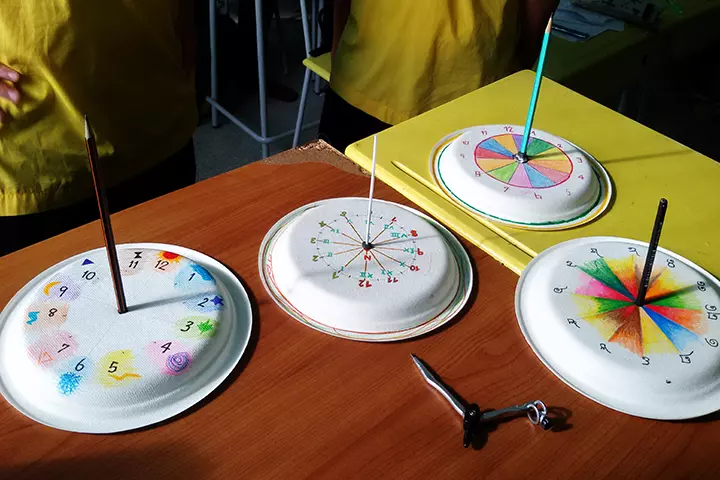
Before clocks, people used sundials to tell time. Teach your children how to make one. All you need is to find the direction, ‘north,’ and put a stick in the ground in that direction. As the sun moves, its position changes and the shadow it casts helps you tell time. This is a great activity to introduce kids to basic astronomy and timekeeping. Encourage them to observe how the shadow changes throughout the day.
26. Have fun with paper mache
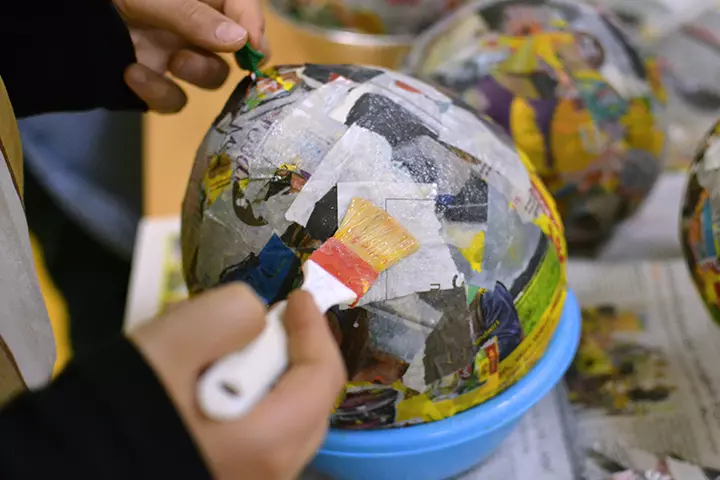
A bottle of glue, balloons, and pieces of paper cutouts are all your child needs to have endless fun for hours! Quickly browse online and pick from the many tutorials. The activity helps improve patience and creativity while allowing kids to make unique 3D sculptures. Let them paint their creations once they dry.
27. Make a paper bead necklace

There are several newspaper crafts for kids, such as making paper bead necklaces. Use newspaper, colorful magazine clippings, or wrapping paper and roll them into bead shapes. It is an easy craft you can do without going to the store. This activity helps develop fine motor skills and introduces upcycling in a fun way. Try sealing the beads with glue for a polished look.
28. Make box monsters
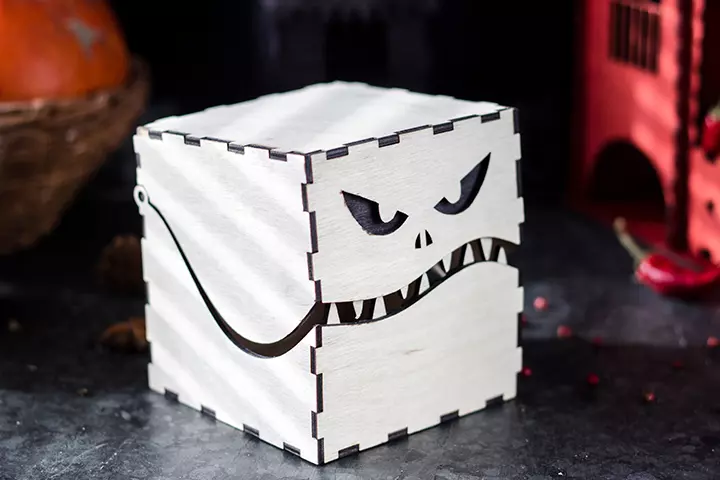
There’s a chance you have empty boxes lying around the house. You can easily paint them and turn them into cute monsters. You can even use the box for a game. Grab a small ping-pong ball and play “feed the monster” by throwing it into the monster’s mouth. This craft encourages imaginative play and creativity. Add googly eyes and fun textures for extra personality.
29. Create a DIY jellyfish
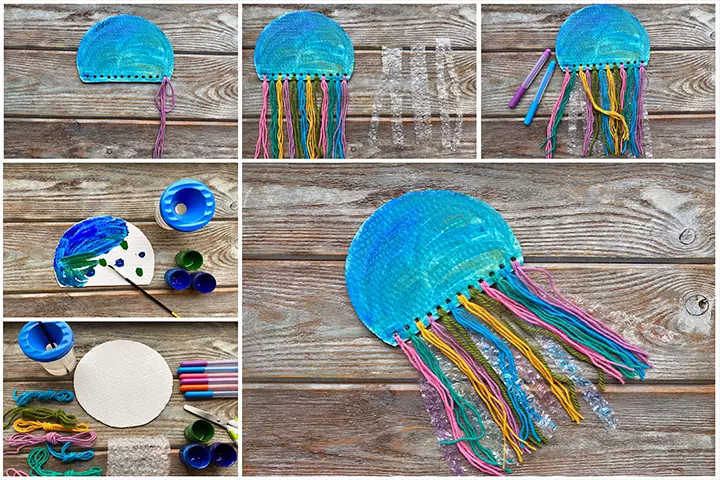
Transform strands of yarn and paper plates into a creature from the deep blue sea. You can paint them with glow-in-the-dark paint and see them come to life when the lights are off. This is a great way to introduce kids to marine life while improving their fine motor skills. Hang them up to create an ocean-themed room decoration.
30. Make an art collage

Let your child’s inner PicassoiRelated to the genius of Pablo Picasso, a famous Spanish sculptor and painter of the 20th century. out with the help of a bunch of old magazines, scissors, and glue. Encourage them to cut out various pieces and use them to craft a magnificent collage as part of their art projects. Collage-making develops creativity and storytelling. Challenge them to create themed collages based on nature, animals, or fantasy worlds.
31. Create a boredom jar
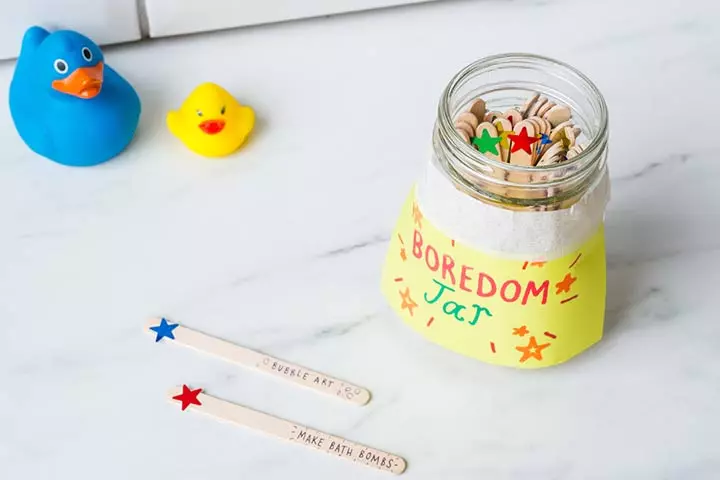
Write different activities, games, chores, crafts, arts, things to do, etc., on ice cream sticks. Put them in a jar. Whenever your child says “I’m bored,” let them pull out a stick from the jar and do whatever it says. This encourages independence and decision-making. Let your child contribute ideas to make it even more engaging.
32. Make a comic strip
If your child enjoys drawing, you can encourage them to create a comic strip using their artistic skills. This involves storytelling, drawing, and developing a storyline. Creating comics increases your child’s creativity, literacy, and sequential thinking. Provide speech bubbles to guide their storytelling.
33. Paint rocks
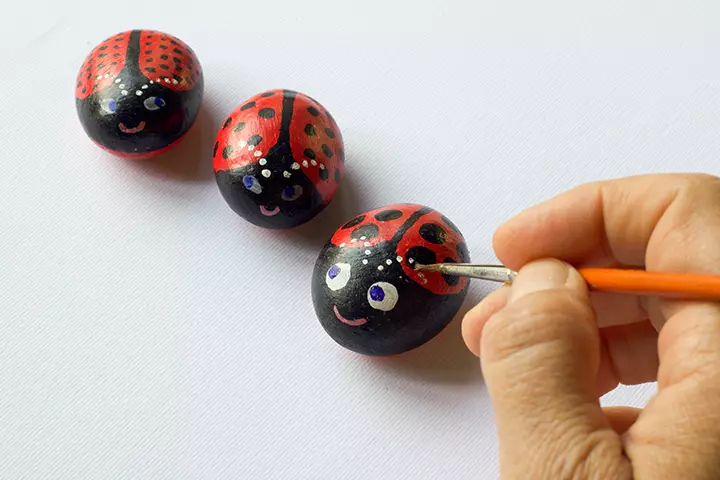
During a stroll outside, let your child pick up rocks and come home and paint them. You can use them to decorate your home or garden. Painting rocks helps develop fine motor skills and encourages artistic expression.
34. Put on a show with sock puppets

Put all those single, lonely socks to use by transforming them into sock puppets. Cut out a mouth and draw a face. Then, let your child’s imagination run wild by putting on some fun puppet shows. This activity boosts creativity, storytelling, and confidence. Encourage them to create different characters and use different voices for an entertaining show.
35. Make your own Play-Doh

With a few common household items, and in absolutely no time, you can make your own Play-Doh sets. Save money and involve the kids in this thrifty kitchen craft activity. Playing with Play-Doh allows kids to experiment with colors and textures and helps stimulate their senses. Add scents like vanilla or cinnamon for extra enjoyment.
36. Build a fort
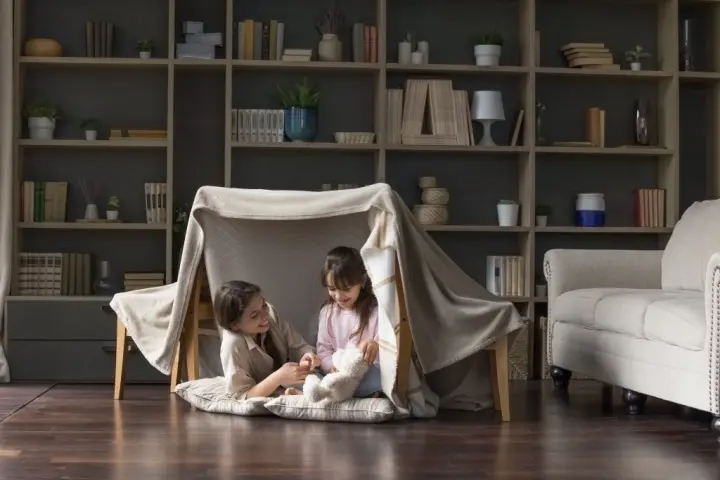
Building a fort is one of the most fun playtime activities for children. Bring out all the pillows, chairs, boxes, blankets, and sheets, and let your child create their own magical fort. Once the fort building is complete, take a seat inside, play games, and sip a cool drink.
Jess Connell, a mom and blogger, shares how she keeps her children engaged with fort-building activities. She says, “Whether you do it under the coffee table, between dining room chairs, or strung across the hallway, building a fort is a fun way to instantly inspire creativity in your children. Whether they turn it into a sleep tent, a coloring room, a place to take care of babies, or a giggly play place, it is a great way to cheerfully extend playtime. I tend to use this option on rainy days or long days when my husband won’t be home until past the kids’ bedtimes (ii).”
37. Create sidewalk art

Sketching on paper is standard. Take it a notch higher by letting your child sketch on the sidewalk. Give them a few colorful chalks, and that’s it! It will lead to hours of fun and entertainment. Sidewalk art encourages outdoor play and creativity. Try drawing obstacle courses or hopscotch for added fun.Mother and artist Kendra John has come up with a perfect solution for the times when you do not have chalk at home. In her blog titled Activities For Kids To Overcome Boredom, she writes, “Water + Cornstarch + Food Coloring. I don’t really know the exact measurements. It doesn’t need to be exact. But I did notice the more cornstarch the better and brighter it dried. Just make sure you stir it in the cornstarch really well so it doesn’t clump up (iii).”
38. Teach them cross-stitch

Let your child delve into arts and crafts with cross-stitch. Get a few special kits, such as blunt needles, for youngsters and beginners and teach them some easy patterns. It’s time to put their hands to work! Cross-stitching improves patience, fine motor skills, and concentration. Start with simple designs before moving on to more complex patterns.
39. Write a story

Whether it’s a funny story, an imaginative adventure story, or a real-life incident, writing gets the creative juices flowing and stirs children’s imagination. Storytelling develops literacy and critical thinking skills. Encourage illustrations for an extra creative touch.
40. Enjoy a scavenger hunt
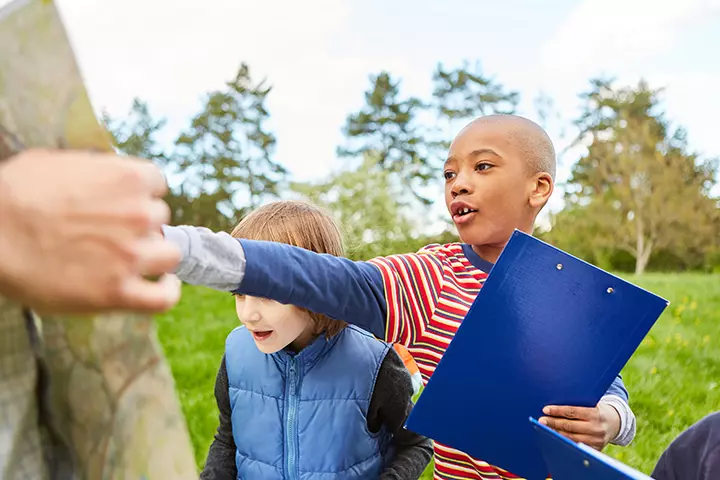
Write down a list of a few items, such as something soft, something yellow, or something triangle, and invite your children to participate in scavenger hunts to solve the clues. The clues can be easy or hard based on the child’s age. Scavenger hunts improve observation skills and problem-solving. Add a time limit or small prizes to make it more exciting.
41. Make a miniature garden
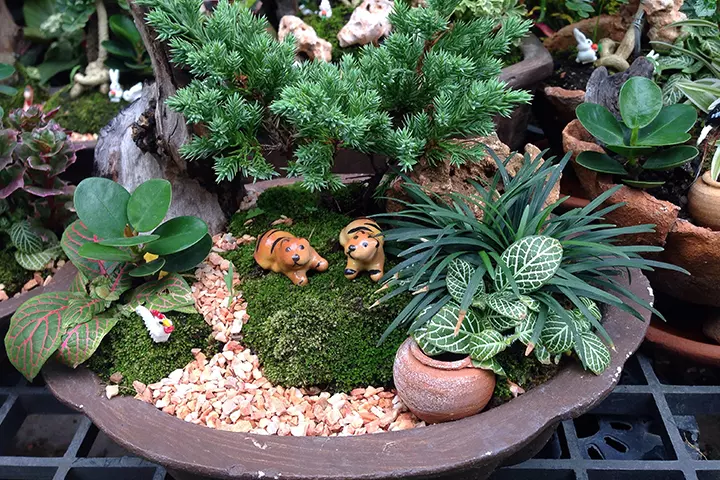
Create a beautiful mini garden using foil trays. Use rocks, twigs, succulents, toy figures, etc., to make your mini garden more lifelike. Add sand for a beachy scene and thermocol for a snowy backdrop. This activity encourages creativity and teaches children about nature and landscaping. Gardening is also a calming activity. Let them personalize their garden with tiny handmade decorations.
42. Create something fun using junk
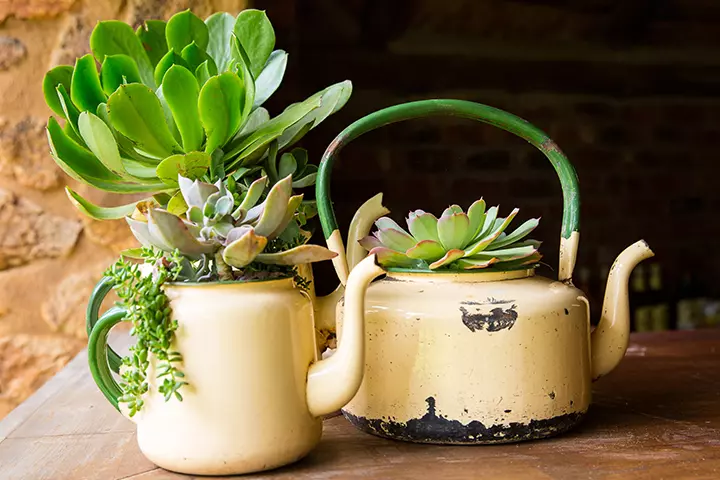
Use glue, tape, scissors, and old things, such as plastic bottles, cereal cartons, egg boxes, and more to create something fun and innovative. Upcycling junk into art can teach children both creativity and environmental awareness. Challenge them to make a robot, castle, or toy vehicle.
43. Make bath bombs

Whether you want to unwind after a hectic day, or your little ones want to splash around and have fun, bath bombs are perfect for everyone. Rather than spending a lot, indulge them in a fun and easy DIY project and make your own! Making bath bombs introduces kids to basic chemistry while allowing them to create colorful, scented bath treats. Try different essential oils for a relaxing effect.
44. Get crafty with toilet roll tubes
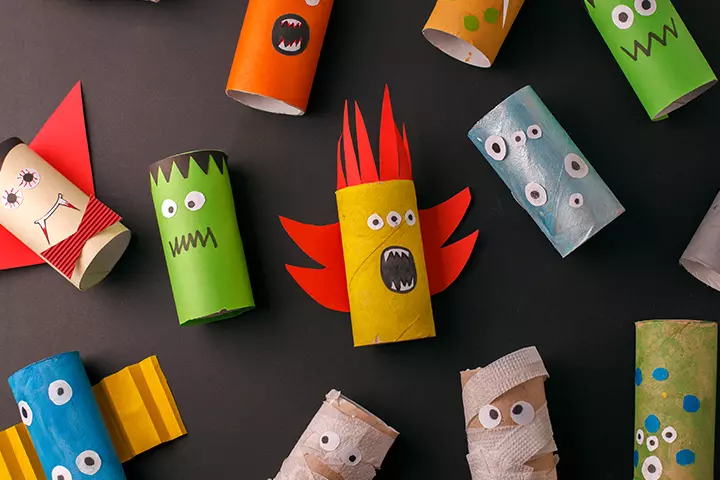
Every household will have a few toilet roll tubes. They’re the best at engaging in various DIY projects. Whether it’s a new decoration for the kitchen, a pen holder for the office, or cute little toilet roll animals, your options are endless! This activity promotes resourcefulness and creativity. Encourage your children to paint and add googly eyes for more fun.
45. Grow an indoor herb garden
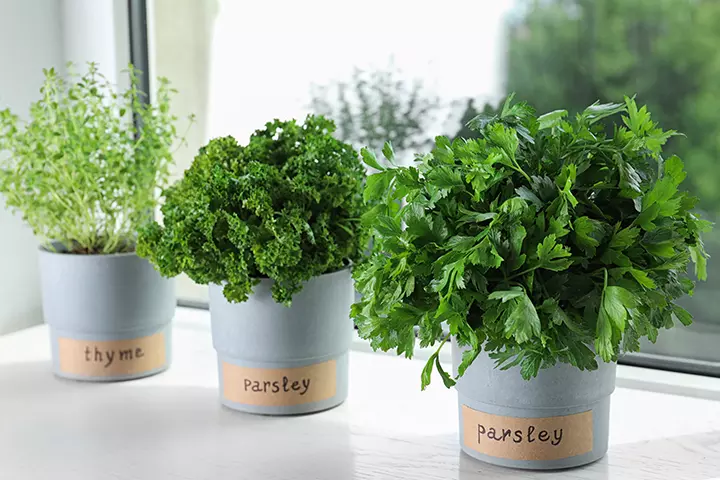
A tin can is all you need to grow herbs such as mint, basil, and parsley. With the right care, they thrive indoors. Gardening teaches responsibility and patience. Your children will love watching their plants grow and finding fresh herbs on their plates.
46. Build a terrarium

Terrariums are easy to make, require minimal materials, and even come in kits. Spend an evening making a few with your child and decorate your home. This activity introduces children to plant ecosystems and responsibility. Try adding tiny figurines for a fun, fairy-like theme.
47. Make picture frames

DIY photo frames are perfect for your living room. Look up some ideas online and create them with your child to transform your home. Making picture frames helps develop fine motor skills and creativity. Use popsicle sticks, seashells, or buttons for unique designs.
48. Make paper airplanes

Paper airplanes have your child’s back when they’re bored. There are plenty of paper airplane designs and templates online. Pick one, get building, and start racing! This activity improves hand-eye coordination and introduces children to basic aerodynamics. Try different folding techniques to see which flies the farthest.
49. Create pasta jewelry
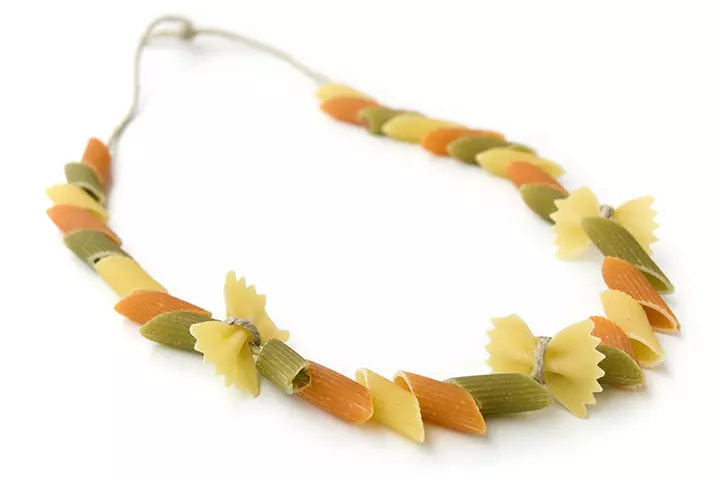
Children will have lots of fun making colorful pasta accessories. In the process, they’ll learn about different shapes and colors and develop their fine motor skills. Painting and threading pasta pieces helps develop coordination and creativity. Seal with glue for longer-lasting jewelry.
50. Make your own soap

With a few ingredients, you and your children can make natural soaps that are better for your skin and the planet! Do not forget to customize your designs and create different shapes. You can insert small plastic toys inside the soap bars to let your children have a fun bath time experience. Soap-making is a fun sensory activity that also introduces children to chemistry. Let them experiment with scents and colors to create personalized gifts.
51. Try origami

Talking about paper planes and paper frogs, you might as well hone their origami skills. From turtles to hummingbirds and dinosaurs, your child can create nearly anything and everything they imagine. Origami improves patience, concentration, and fine motor skills. Start with simple folds and gradually progress to complex designs.
52. Make bird feeders

Bird feeders attract different birds into your backyard. Youngsters can make a simple feeder with a plastic bottle, while older children can create complex and artistic ones. This activity teaches children about wildlife and responsibility. Observing visiting birds can be a fun and educational experience too.
53. Create a family time capsule
A family time capsule lets you and your family look back at different years. Include a variety of things such as magazines, letters, photos, and more. Put everything in a box, hide it away somewhere safe, and set a date to open it up! Don’t forget to dress up for the occasion! This activity helps strengthen family bonds and create lasting memories. Encourage your children to write letters to their future selves.
Academic Things To Do When Kids Are Bored
54. Make your own flashcards
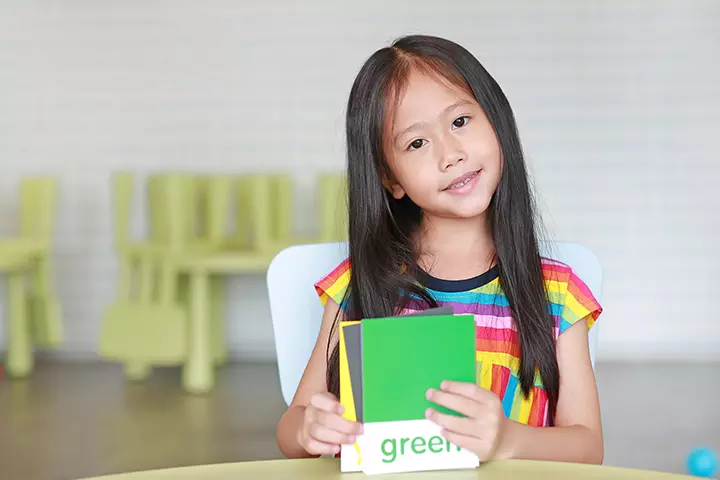
Let your child design creative flashcards that you can use later to teach them math, English, or science! Creating flashcards improves memory retention and makes studying more engaging. Let them add drawings or colors to their cards.
55. Practice instruments

Encourage your child to play an instrument, and ensure they put in the hours every day to master it. Playing an instrument encourages discipline and improves cognitive skills. Start with short practice sessions and gradually increase the time.
56. Start a collection
Collecting stuff is an old-school tradition. Indulge your child in it. You can pass your collection down to your child and let them add to it or encourage them to start something new. They could collect painted rocks, seashells, stickers, coins, or stamps. The activity teaches patience, organization, and appreciation for history or nature. Encourage your children to research and document their findings.
57. Go birdwatching in the backyard

Birdwatching lets your child catch sight of the pretty little and adorable birds and unveils their unique personalities. Let them take notes and learn about different species. This activity increases children’s curiosity and appreciation for nature. Provide binoculars and a guidebook to make the activity more interactive.
58. Learn a new language

There are plenty of web platforms for children to learn a new language. They can also learn ASL (American sign languageiPrimary sign language of the deaf communities in the US and English-speaking regions of Canada. ). Learning a new language improves cognitive skills and cultural awareness. Set fun challenges, such as learning five new words daily.
59. Help them learn topics that may not be taught in school

Focus on topics beyond the curriculum, such as how to deal with rejection or racial inequality. It will help them in the real world. Life skills develop children’s emotional intelligence and resilience. Use age-appropriate books, videos, or discussions to make learning engaging.
60. Teach them about different character traits

Different positive character traits help your child go a long way in academic life, personal life, and work life. Help them learn about dependability, grit, honesty, courage, and more. Character education helps build confidence and responsibility. Share real-life examples or stories to demonstrate these traits effectively.
61. Help them learn about a new country or culture

Your child can experience different cultures without leaving the comfort of their home. From learning the basics of a new language, discovering new forms of dance, immersing themselves in the world of music, or trying new cuisines, they can also experience the diverse flavors of various cultures. This activity can help increase your child’s global awareness and appreciation for diversity. Start by exploring a different country each week and engaging in related crafts, food, or music.
62. Try different STEM activities

You’ll find a host of STEM activities and science kits that will help your children have fun while learning about science, technology, engineering, and mathematics. Hands-on learning improves your child’s problem-solving skills. Start with simple experiments, such as baking soda volcanoes or Lego engineering challenges.
63. Listen to podcasts
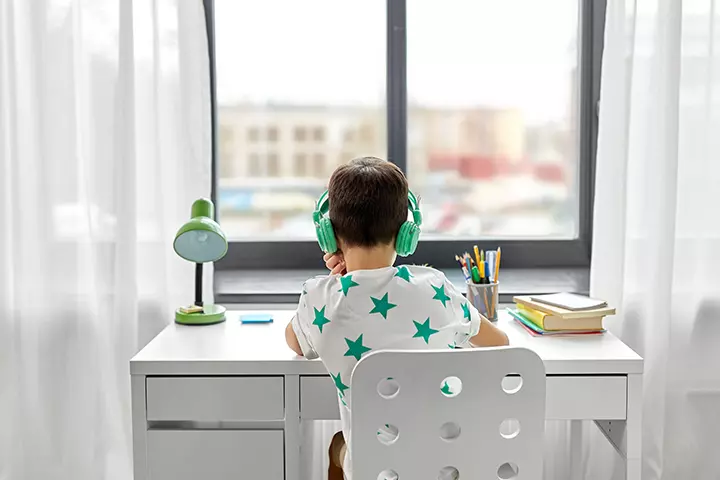
Do some research, pick some kid-friendly podcasts, and let your child enjoy hours of entertainment. Listening to podcasts improves children’s listening skills and imagination. Choose educational or storytelling podcasts based on their interests. They can later talk about the podcast in detail with you or someone who follows similar podcasts.
64. Start a book club

Reading is certainly thought-provoking, but you can take it up a notch. Encourage your child to start a book club. Book clubs can stimulate your child to discuss books, ask questions, and understand things from a different perspective. This activity helps develop critical thinking and social skills. Begin with short books and schedule regular discussions with friends or family.
 Did you know?
Did you know?65. Download and print fun worksheets
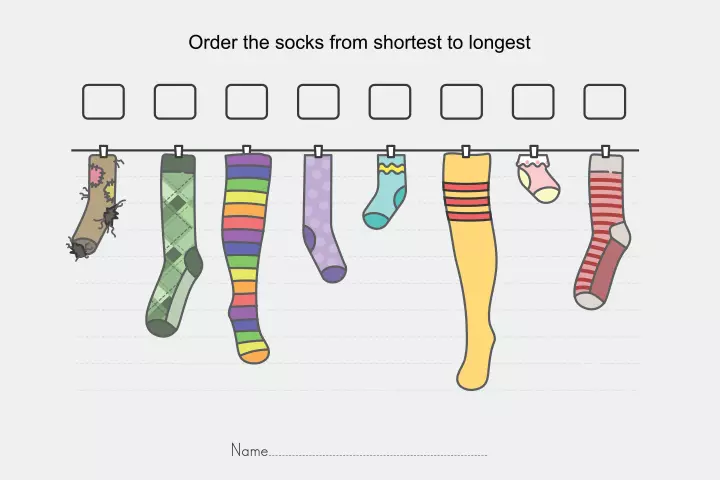
Browse the Internet, and you’ll find a host of different worksheets for different subjects and age groups. Pick a few and keep your child occupied for a few hours. Worksheets reinforce learning in a struc
66. Practice spelling
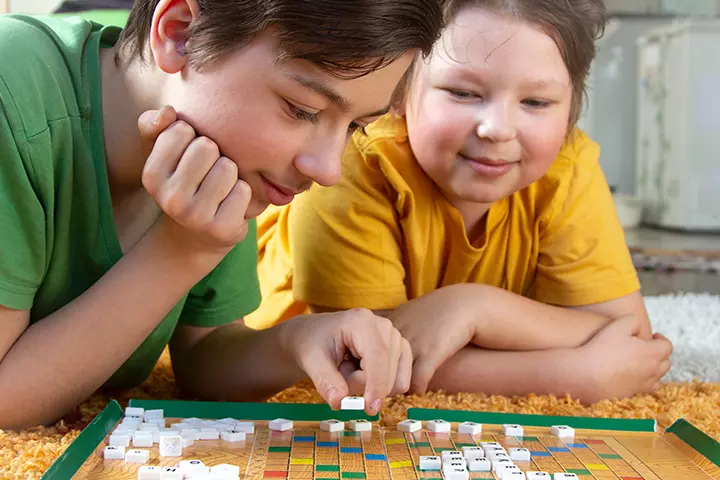
Spellings aren’t easy, especially for complicated-sounding words such as ‘frightened,’ ‘gnaw,’ or ‘reign.’ So, a little practice in the form of games, such as scrabble, goes a long way. Use fun spelling challenges, flashcards, or online games to make learning engaging and boost their vocabulary and writing skills.
67. Plan and prepare meals together

Cooking is a combination of art and science and involves communication, time management, and planning skills. Sometimes, when your child thinks of new ways to create old dishes, it encourages creativity. Start with simple recipes and gradually introduce new techniques. Cooking develops independence and encourages healthy eating.
68. Write a letter

Writing a letter to a grandparent, uncle, aunt, parent, friend, or even Santa is an excellent way to improve children’s writing skills. It also helps them express themselves and is a great mental exercise. Encourage them to add drawings or stickers for a personal touch.
69. Create a “when I grow up” poster

Children dream of becoming astronauts, air hostesses, and actors. There is no limit to their imagination. You can get them to imagine their life and draw it out on a poster and include family members, pets, cars, and more. This activity encourages goal-setting and self-expression. Ask your children to research and write about their dream career.
70. Do fun science experiments

From chemical reactions to crystals, reflection and refractioniThe shifting of light from its original path when it passes from one medium of the same or different density to another. , and volcanoes, science experiments are super fun while also encouraging learning. Sometimes, exciting projects help children learn difficult concepts. Science experiments can improve your child’s curiosity and problem-solving skills. Start with simple at-home projects, such as making slime or a rainbow in a jar.
71. Write a story about your week
Have your child recollect everything that took place during the week and then weave it into a story and draw it out or write it. With time, you’ll have enough material to make a book! This activity improves children’s memory, creativity, and storytelling skills. Encourage your child to add pictures and dialogue for a more engaging experience.
72. Tend a vegetable garden

Tending a vegetable garden teaches your child where food comes from. Besides, they also learn a few science lessons, such as the different parts of plants and the benefits plants have on earth. Moreover, they get their daily dose of vitamin D! Start with easy-to-grow plants like tomatoes or basil. Gardening increases responsibility, patience, and an appreciation for nature.
73. Read a book

Reading has no downsides. It is hands-down one of the best hobbies for kids. From stimulating curiosity to piquing imagination and developing concentration, books have so many advantages. Get them started today! Create a cozy reading space and set a daily reading goal. Discuss stories to build comprehension and critical thinking skills.
74. Make math cue cards
Turn your child into an A+ student with the help of cue cards. They’ll help them practice, memorize, and learn multiplication, formulas, and more. Use colorful markers to make learning more fun.
75. Learn via games

Children love the iPad and other gadgets. So engage them creatively by learning with games. There are many games and activities that can help them learn and play. Choose educational apps and board games that focus on math, vocabulary, and problem-solving to make learning engaging.
76. Join an online program

Children can enroll and learn from the comfort of their homes. They can pick anything that interests them. Whether it’s a skill or something academically inclined, it will be beneficial one day. Try to look for interactive courses with hands-on activities. Learning coding, art, or music online can spark new passions.
77. Put on a science show

Let them learn different science tricks and put up a show to entertain the entire family! Encourage them to explain each experiment like a real scientist. This can improve their public speaking skills and encourage scientific curiosity.
78. Practice opposites
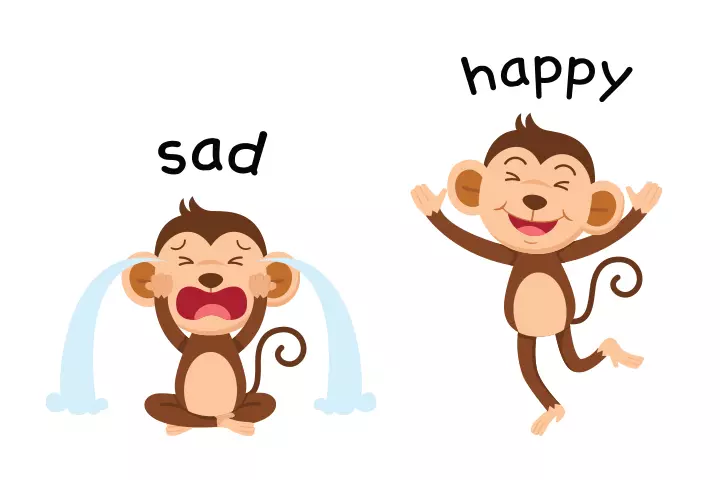
For younger children, the opposites game is an excellent way to keep them engaged. You can say a word such as ‘in’ and let them say the antonym. For older children, you can use tougher words such as ‘abstract,’ ‘arduous,’ or ‘grueling.’ This helps build their vocabulary and cognitive skills. Make it fun by acting out opposite actions, such as fast/slow or happy/sad.
79. Practice mindfulness

Children of all ages benefit from mindfulness. It can be practiced through various apps or mindfulness activities and games for kids, including yoga and meditation. It’s beneficial as it helps improve attention. It also helps them become more patient and better listeners. This activity is beneficial as it helps improve attention. It also helps your children become more patient and better listeners.
80. Teach them chess

From improving attention span to visual memory, reasoning ability, and critical thinking, chess offers a host of benefits. Plus, they will enjoy it! Begin with basic rules and gradually introduce strategies. Playing chess regularly improves problem-solving and decision-making skills.
81. Enjoy stargazing

Stargazing helps children learn all about different constellations and the night sky. You can even play a game or two to enhance learning. For instance, you could try spotting different shapes. If you’re not well-versed with the sky, use the help of apps. You really can’t go wrong while stargazing with kids. Bring along a telescope or binoculars for a closer view of the planets and the moon. Select an open place free from light and set up a camp.
82. Learn a new skill
Be it photography or a craft, children can put their spare time to better use by learning a skill that will help them in the long run. Ice skating and roller skating are also great options for kids to explore and develop their abilities. Let your child set small goals, like mastering a trick in skating or taking five creative photos a day.
83. Learn how to code

If your child is a computer genius, maybe coding is for them. Children can start at a young age and hone their skills. It’s a low-stress activity and ensures your child is occupied for a few hours. Use platforms like Scratch or Tynker to make coding fun and interactive and develop their analytical and problem-solving skills.
Collaborative Things To Do When Kids Are Bored
84. Guess what’s in the box
Cut out circles on the sides of a cardboard box so your arms can fit through. Place different items inside the box and let someone stick their hands in and guess what’s in the box! It’s a fun game for the entire family. Use objects with different textures, such as something soft, bumpy, or cold, to make the guessing more exciting and challenging.
85. Do a puzzle together
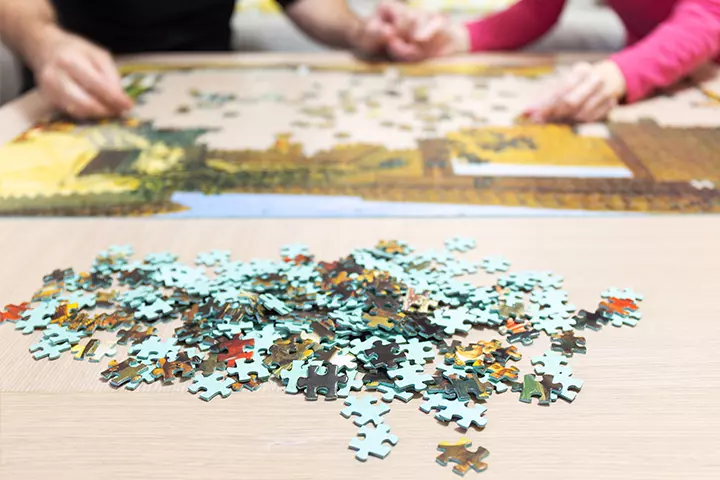
Puzzles take patience and skill, so your child may need a little assistance. Choose a puzzle, such as a jigsaw puzzle, and work on it together. If you can’t finish it in one sitting, get back to it after a few hours or the next day. Set a fun challenge, like timing how long it takes to complete a section. You can frame the finished puzzle as a keepsake.
86. Color together

Who says coloring is only for youngsters? Both adults and children can indulge in coloring. Children can pick Disney coloring pages online, while adults can choose adult coloring books. Try a collaborative coloring page where each person works on a section. Coloring together is relaxing and sparks conversations.
87. Create a family journal

Sit together and create an ornate diary or a simple journal about the family. You can either decide on a topic, such as ‘honesty,’ or just enter your thoughts daily. Journaling is a wonderful means of bonding with our children today and a valuable keepsake for the future. Include doodles, quotes, and fun prompts like “What made you laugh today?” to make the journal more interactive.
88. Map out a family tree
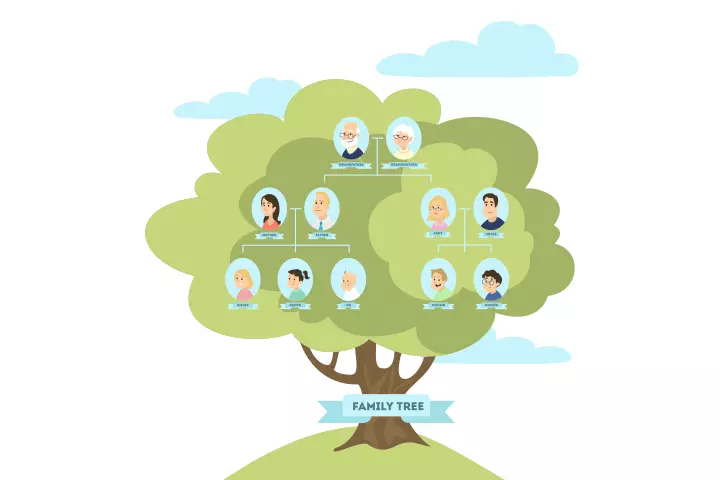
You and your children can get to know about your roots with the help of a family tree. Sit together and start mapping out your family. In no time, you’ll have a complete family tree. Decorate the tree with pictures or little drawings for each family member. In no time, you’ll have a complete family tree.
89. Host a paint night
Older children, younger children, grandparents, uncles, aunts, cousins, and everyone can participate in a family paint night. There are several painting ideas for kids available on the internet. A few canvases, paints, brushes will yield a night of laughter and fun! Set up a theme, such as “Under the Sea” or “Outer Space,” and display the artwork around the house.
90. Organize a treasure hunt
Treasure hunts are an enjoyable and simple activity for the whole family. One person can hide 10 to 20 items around the house while the others look for them. Write clever clues or riddles to make it more exciting. Offer a fun prize for the winner or make them choose the next family activity.
91. Enjoy bike rides
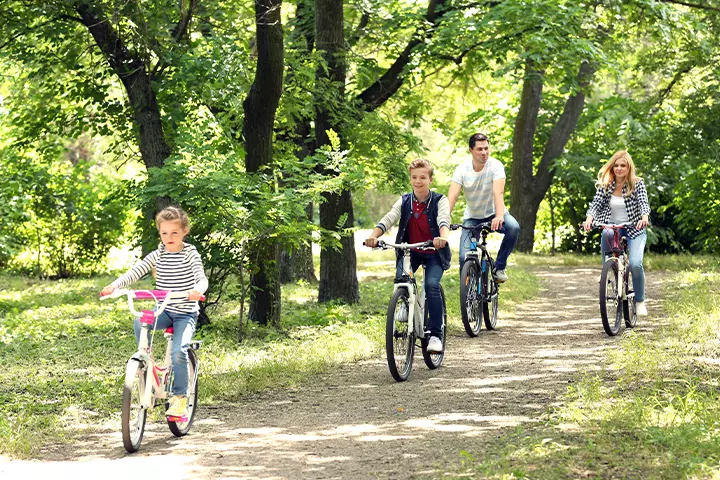
Nothing is more fulfilling than engaging in outdoor play with your children, such as riding a bike around the block or the nearest park. The activity can boost the mood and clear the mind of boredom. You could also try setting up a biking challenge, like a scavenger hunt or obstacle course, to make the ride more interactive and fun!
92. Re-organize the room
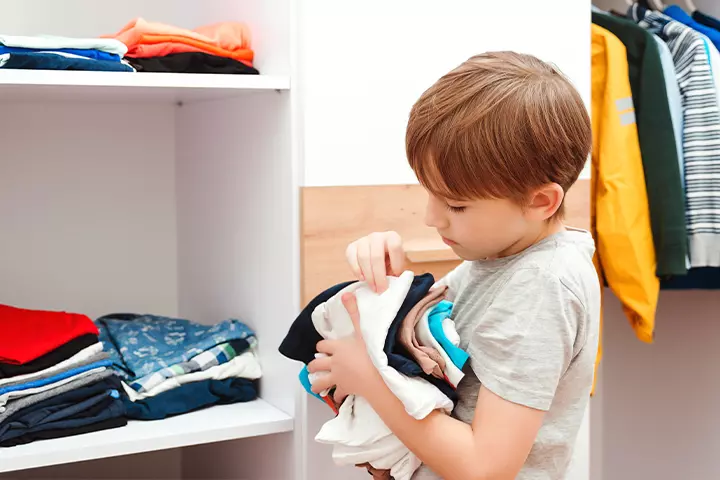
When children are bored, entice them with a good reward to clean and re-organize their room. They can move furniture around or add pieces of décor for a fresh feel. Turn this activity into a room makeover challenge! Let them create a vision board for their ideal room and help them bring it to life.
93. Bake something

Make baking a fun activity by working together with the children! From pizza to cakes and cupcakes, there’s plenty to do. They can help you with the dough and toppings. Try a mystery ingredient challenge where the children pick one surprise ingredient to incorporate into the recipe.
94. Indulge in a fun workout

There’s nothing more energizing than a fun workout with your kiddos. Switch on your laptop, play a workout video, and get moving together! Youngsters need not stick to the rules. Create a fun dance-off or an obstacle course to make movement even more exciting!
95. Go on a mindful walk

Unlike a regular walk, a mindful walk is where you take time and notice the little details that you will otherwise not notice. Nature walks are an excellent opportunity to engage all your senses and be present at the moment. Closely observe birds and animals, different sounds, the colors, the direction of the wind, the pattern on the pavement, and the smell of the air. Bring a notebook and have the children draw or write about what they observe. Turn it into a nature journal!
96. Camp in the backyard

What’s more fun than camping in the backyard with your family? Set up a tent, light up a fire, and enjoy different games and activities that will keep you entertained all night! Add a storytelling session, shadow puppet show, or stargazing activity to make it extra magical.
97. Enjoy themed picnics
Give a twist to your regular picnics. Pick different themes for your picnic, such as “Mexican,” where the entire family dresses up in Mexican attire and carries along Mexican food, such as salsa, guacamole, nachos, and tacos. Let the children help with meal prep and decorations and also create a playlist to match the theme!
98. Have a movie night
Movie nights with the family in the backyard is as good as it gets! Set up a projector and screen in a cozy spot. Place a comfortable mat and pillow, pop up a lot of popcorn, and you’re good to go! It’s an enjoyable and affordable way to relax and unwind while enjoying your favorite movies under the stars. You could also create movie tickets and a concession stand with homemade snacks for an authentic experience.
99. Have a fun photoshoot

A family photoshoot is a memory you’ll treasure for the rest of your lives! You can dress up or just lounge around in your PJs and make funny faces. Use a creative backdrop for a themed photoshoot.
100. Have a fun indoor picnic

If you cannot step out, set up a picnic spot indoors. It’s cozy and perfect for the entire family to enjoy. You could also play word games or charades to enhance the experience. Use fairy lights and play soft background music to create a cozy environment.
101. Organize a creative tea party

Ready for an afternoon treat? A tea party is your best bet. Pick some crackers, tea cakes, freshly brewed tea, fancy cups, and saucers and set up the table. Let the children create menus, serve as waiters, and dress up for an extra fancy experience.
102. Travel together, virtually
You can always travel virtually. It’s a fun and easy learning method for children. Many museums, zoos, and more offer virtual tours. These tours allow children to explore and learn while visiting museums, zoos, aquariums, amusement parks, and other local attractions from their homes. Keep a travel journal to document the places visited and the coolest facts learned.
103. Wash the car

Car washing with children is a perfect activity for boredom. It combines fun and responsibility, as kids splash in water and soap while learning about cleanliness and care for belongings. They can scrub, rinse, and dry the car, turning a mundane chore into an enjoyable and educational experience. Play music, have a water balloon fight, or let the children compete for the cleanest spot on the car! This activity also fosters family bonding and instills a sense of accomplishment in kids.
104. Play hide-and-seek

Playing hide and seek is an excellent way to entertain bored kids. This timeless game sparks creativity and excitement as children find inventive hiding spots and experience the thrill of the search. It provides physical activity, enhances problem-solving skills, and teaches patience. Hide and seek offers a simple yet engaging way to bond and create joyful family memories. Add variations like Sardines (where one person hides and everyone else seeks) or glow-in-the-dark hide-and-seek for a nighttime twist!
Frequently Asked Questions
1. Why is boredom good for children?
Boredom may be good for children because it gives them an opportunity to explore their interests and hobbies. It also helps develop new skills, creativity, and self-esteem (1).
2. Why are children bored easily?
Children may often complain about being bored. However, sometimes boredom may be a sign of hunger, need for attention, or curiosity about your work. You may help children manage their boredom by encouraging creativity and teaching them to be involved in productive activities (1).
3. What age groups are more prone to boredom?
A study states that adolescents are more likely to experience boredom (2), especially individuals in the age group of 14 to 22 years, who have shown a rise and fall trend in experiencing boredom (3)(4) However, different studies report varying results, with the common belief that boredom may increase with age.
4. What environmental factors contribute to boredom in children?
One of the primary external causes of boredom is lack of stimulation, where children are involved in repetitive activities that require no attention or constant attention with little to no variation in the task. In addition, boredom arises when they are stuck in a particular monotonous routine due to external constraints, such as in an educational setting. This lack of control and reduced autonomy decreases their interest, leading to boredom (5).
5. What are the benefits of reducing boredom in children?
Keeping children engaged in exciting learning activities can help promote both physical and cognitive development. This can further channel their wandering thoughts into something creative and meaningful rather than risky ideas or behaviors. Reducing boredom can also positively influence academic performance and social development.
6. How can I encourage my child to suggest activities when they are bored?
Start by engaging them in regular brainstorming sessions to explore their interests and preferences. Discuss the things they enjoy or are curious about, and work together to compile a list of fun ideas. You could also create a ‘boredom jar,’ where you and your child write these ideas on slips of paper. Whenever they feel bored, they can pick an activity from the jar.
Parents and caregivers struggle to keep the children occupied and entertained when bored since they can be less obedient and naughty when they have nothing to do. Painting, crafts, gardening, photography, or some activities or games are the best things to do when kids are bored. Engaging in activities may help children develop creativity, self-esteem, and thinking skills. Creative activities also improve thinking and imagination skills in children. Although some amount of unstructured time is beneficial for their brain development, it is not the case if they are free for a long time.
Infographic: Encouraging Learning When Children Are Bored
It could be because of monotonous activities or staying at home during holidays; every parent would have encountered a child who is easily or constantly bored. Now that you know a wide range of activities that are great boredom busters for children, it would help if you learn how to boost your child’s interest in these learning activities. Illustration: Momjunction Design Team

Illustration: Awesome Things To Do When Kids Are Bored
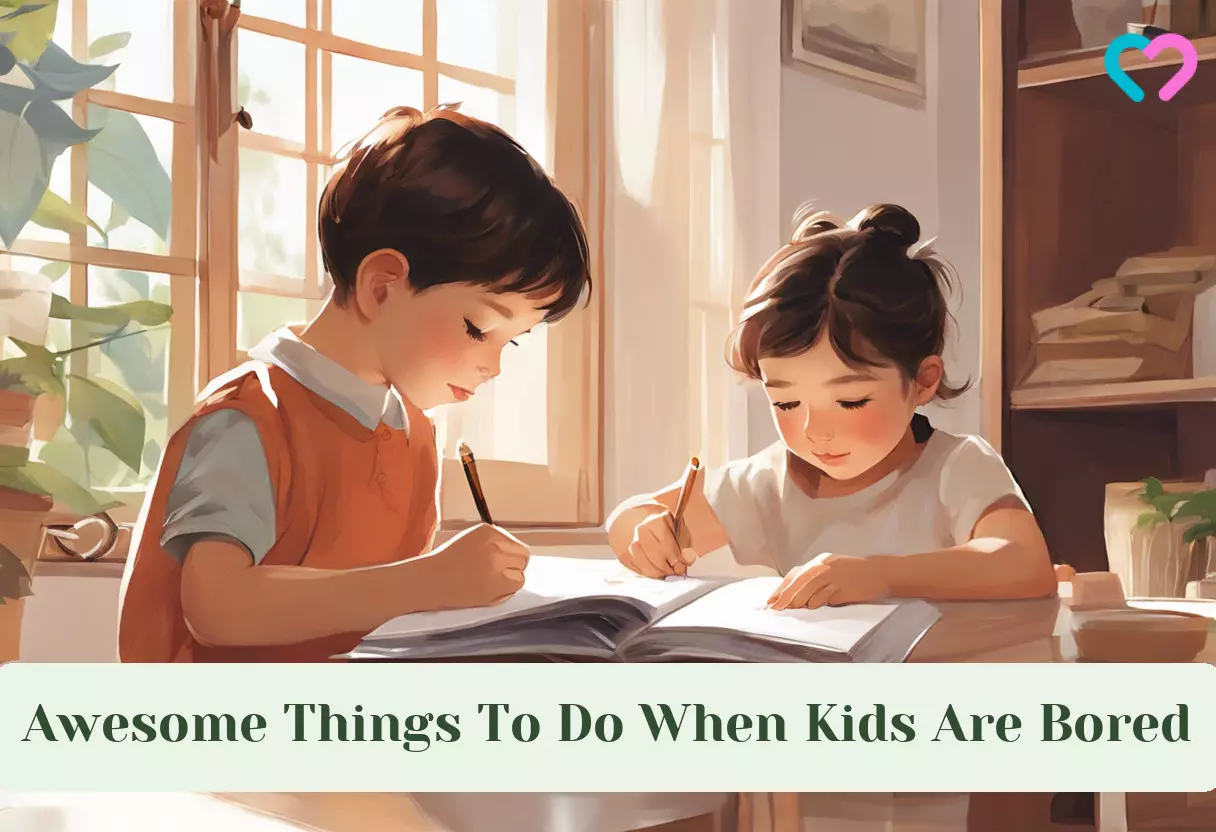
Image: Stable Diffusion/MomJunction Design Team
This video has 10 fun ideas for water play with your kids. Get your colors, buckets, and toys and start getting creative!
Personal Experience: Sources
MomJunction articles include first-hand experiences to provide you with better insights through real-life narratives. Here are the sources of personal accounts referenced in this article.
i. Is It a Bad Thing to Want to Give Our Kids a Magical Childhood?
https://magicalchildhood.wordpress.com/2014/04/06/is-it-a-bad-thing-to-want-to-give-our-kids-a-magical-childhood/?utm_source=chatgpt.com
ii. 21 Cheap, non-electronic indoor things to do with kids.
https://makinghome.blogspot.com/2013/10/21-cheap-non-electronic-indoor-things.html
iii. Activities for Kids to Overcome Boredom.
https://www.kendrajohn.com/activites-for-kids-to-overcome-boredom/
References
- The Benefits of Boredom.
https://childmind.org/article/the-benefits-of-boredom/#:~:text=Kids%20often%20complain%20about%20beingball%20and%20run%20with%20it. - Older and Wiser? Age-related Change in State and Trait Boredom During Adolescence and Associations with Neural Correlates of Self-regulation.
https://link.springer.com/article/10.1007/s40750-023-00213-2#:~:text=This%20is%20an%20important%20period - Boredom across the lifespan.
https://www.bps.org.uk/psychologist/boredom-across-lifespan - More bored today than yesterday? National trends in adolescent boredom from 2008-2017;
https://www.ncbi.nlm.nih.gov/pmc/articles/PMC7007872/ - Why Boredom is Interesting;
https://libraetd.lib.virginia.edu/downloads/hx11xf82f?filename=1_Westgate_Erin_2018_PHD.pdf
Community Experiences
Join the conversation and become a part of our nurturing community! Share your stories, experiences, and insights to connect with fellow parents.
Read full bio of Dr. Neha Mehta
Read full bio of Advaitaa Ravi
Read full bio of Harshita Makvana
Read full bio of Nisha Bharatan













